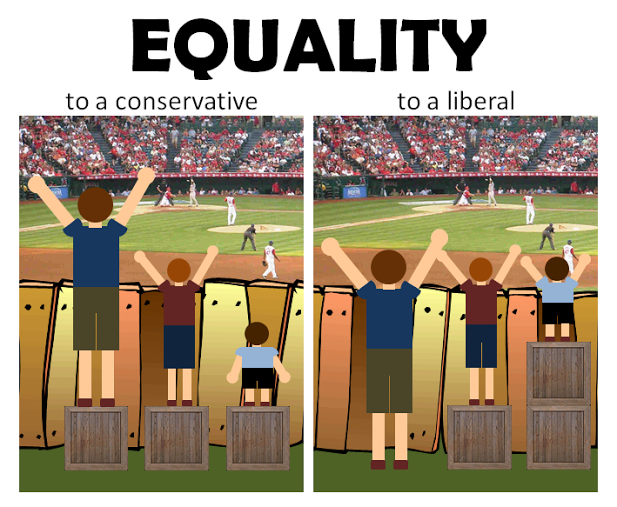( – promoted by lowkell)
 by Paul Goldman
by Paul Goldman
While today’s Politico article by John Martin is a well-written ode to the conventional wisdom about 2013, it is, in the end, just that and no more. Basically, Martin had the usual suspects articulating generic analysis about whether someone as conservative as Attorney General Ken Cuccinelli can be elected governor.
What the story lacks, what the analysis lacks, is what will answer the question: namely, how will real events define the public image of both presumptive GOP gubernatorial nominee Cuccinelli and rival Democratic standard-bearer Terry McAuliffe? Forget the pseudo events of a thousand campaign stops, of a hundred campaign position papers, of whatever $millions in campaign advertisements are aired. In gubernatorial politics, there are defining moments that invariably determine the winner and loser. All the campaign strategies, all the media, all the news stories, all the built-in voter leanings person by come to a head at different key moments. At those moments, the voters get to see how Ken or Terry handle themselves at these forks in the road to the governorship. Like key points in a maze, which way you go determines who gets through the maze and lives in the Governor’s Mansion.
Like the Decathlon at the Olympics, it is possible to overcome a bad performance on any particular event; but not likely unless the leader stumbles later in the contest. In the Decathlon, given the ability of the competitors, it is so very difficult to make up the points lost no matter how strong your latter performances. When you get too far behind, you lose the power to determine your own destiny.
So as we enter 2013, one of the potentially defining moments, a potentially key event of the political Decathlon aka the Virginia governor’s race, is likely to be this one: Will Ken Cuccinelli resign as Attorney General in order to run for governor?
As the Politico article correctly surmises, Mr. Cuccinelli is vulnerable – whether you believe it fair or unfair – to an image of being a bit too ideologically driven for the role of chief executive of Virginia. As I say, he may feel this is an unfair categorization of his approach to governing. He may feel what I would call ideologically is really just a principled conservatism.
But I use the word “image” for a reason: one’s political image is just that, what the public thinks you to be, not necessarily what you are. I am not being judgmental in that regard, only calling it the way it is. The “medium is the massagem” famously said Marshall McLuhan. This is supposedly a play on his more famous axiom “The media is the message.” I don’t claim to understand it, except to say: He was right.
Since the days of Homer and before, there is the myth, there is the reality, and they get merged into image in the public mind by the timing of events, the telling of events, the massage of the events on the public mind. The precise substance is lost to more or less of a degree. In that regard, an image can take on a life of its own. That’s why we call it an image. But at some time, it becomes reality to a lot of voters, usually enough to decide an election.
Fair or unfair – I have my view, others have theirs – Mr. Cuccinelli can not become governor if he is seen as too ideologically rigid to be governor. That’s a fact, not fiction. To be fair, or perhaps equally unfair, Terry McAuliffe can not be governor unless he overcomes an image as being too much the partisan, Democratic cheerleader and fundraiser.
So both men – and this not unusual – have their image vulnerabilities and reason to believe, in their hearts, that what people see is not the real “me.” Welcome to life on Planet Earth.
But given his higher profile, Mr. Cuccinelli has a higher bar to leap. And in that regard, his current intention to complete his term as Attorney General, to stay in his job while running for Governor, could prove a fatal political decision. For good reason too: on a game theory basis, it is politically dumb. It could turn out to be a winner, but in terms of how a governor is supposed to make decisions, it defies the practical side of governing. It is more of a “me” thing than a “we” thing, as I will now explain.
In the defining gubernatorial race of the modern two party era in Virginia – the 1981 contest between Democrat Chuck Robb and Republican Marshall Coleman – the GOP nominee was the sitting Attorney General. Mr. Robb held the post of Lt. Governor, a job the public knows is basically a platform to run for governor. It has no significant constitutional authority, except for the “make work” stuff given to the LG by the governor, and of course a tie-breaking vote when the General Assembly is in session.
Thus, there has never been any political pressure, much less credible reason, for the LG to resign while running for Governor. Moreover the LG is next in line for big job should a tragedy or impeachment cause the governorship to be vacant. Bottom line: Fair or unfair, in terms of resigning to run for governor, no LG has ever felt any pressure, much less need to resign to campaign for the top spot.
Thus, Robb didn’t resign, neither did LG Wilder in 1989, Don Beyer in 1997, or Tim Kaine in 2005. The same for those LG’s who tried and failed to win their parties’ nominations: Dick Davis in 1985, and John Hager in 2001. In 1977, GOP LG John Dalton likewise didn’t resign when he went on to win the governorship in what I consider to be the last race in the immediate post-Voting Rights Act age, where the two major parties were in a period of transition.
In contrast, there has been a far different political custom over the years as regards a sitting Attorney General campaigning for governor. In 1977, then Attorney General Andrew Miller, perhaps due to overconfidence, decided to resign in January to contest the June Democratic gubernatorial primary. He had a huge lead in the polls and was seen as a sure winner, both for the nomination and election. So he resigned while the General Assembly was in session, to allow his allies in the legislature to choose a hand-picked successor. If he had waited until after the GA had adjourned, then the Constitution gives the appointment power to the governor.
As a practical political matter, Mr. Miller’s resignation made sense on this level: justice is supposed to be immune from politics. True, we know, as a practical matter, this isn’t always the case, especially as regards policy decisions at the AG’s level.
But again: appearances matter in the law. Justice is suppose to be blind to such factors. Those responsible for the conduct of our legal system have to accept the importance of this ideal.
Moreover, the AG is by law a full-time position with real authority under the Constitution of Virginia. When the public sees someone campaigning full time for governor – as is required – they naturally want to know why this person is being paid a full-time AG’s salary. The media will ask. There is no answer that will pass the “smell” test.
Long story short: It made, as I say, a lot of common sense on various levels for Mr. Miller to resign as soon as he went into full-campaign mode. Admittedly, incumbent AG’s don’t resign to seek another term, they handle the job while campaigning, and the public doesn’t give it a moment’s thought.
But in politics, as in business, the customer is always right in that regard. Thus in politics, the winning candidate tries not to give voters a reason to question their judgment, moreover leave himself or herself vulnerable to the inevitable Murphy’s law of politics: “Stuff happens.”
Accordingly, AG Jerry Baliles in 1985, Mary Sue Terry in 1993, Jim Gilmore in 1997, Mark Earley in 2001, Jerry Kilgore in 2005 and Bob McDonnell in 2009 all resigned while seeking the governorship. They did it at different times in the election year, each calculating the right moment to make the move depending on how they saw the pluses and minuses of holding the post at any point in time.
But they all did it: because when you do the political math, it is the only smart play given game theory. In that regard, they weren’t merely doing the mental math of politics: they had a concrete example of what can happen if you try to outsmart common sense.
In 1981, Republican Attorney General Marshall Coleman refused to resign as AG. There were several reasons for his decision, one having to do with money: He didn’t have much of it and thus needed the paycheck. Yet the money issue isn’t really that big a thing in VA politics: The voters accept the AG resigning, and joining a law firm, being paid a good salary without actually doing any real work. Yes, there is always the appropriate fig leaf of claiming he or she actually does work to earn the paycheck. But give Virginians a break: we aren’t dumb. Besides, the role of big law firms in lobbying and having sway over a governor is known to us. We accept that as part of the realities of politics. So they pay a buddy money to run. If he wins, they were going to get a lot of business from him anyway even if he were independently wealthy.
We ain’t dumb: a person has to eat, has loved ones to care for, so we let that person join a law firm and get paid while they campaign for governor. We know this isn’t going to change that person’s politics. Indeed, in 1985 and 1993, I believe Baliles and Terry actually drew money from their campaigns to pay for expenses while campaigning.
Again, we Virginians aren’t babes in the woods. No, this probably isn’t consistent with the “best practices” so to speak, but it is close enough for government work as the saying goes.
Baliles, Terry, whoever – they aren’t going to change their politics, they aren’t going to “be bought” in the classic Boss Tweed style by those big donors who give to the campaign knowing it is going to the candidate personally. We crossed that bridge when campaigns began to cost mega millions.
SO EVERY AG HAS SEEN THE LIGHT…Because they saw what happened to Coleman. By not resigning, Mr. Coleman gave Democrats – and his opponents inside the GOP – a way to keep him on the defensive for the entire campaign. It was a continuous drip, drip, drip, of criticism, even the biggest boulder can be whittled down to a small rock by such constant erosion.
Moreover, as I remember it, that was a redistricting year: and the sitting GOP governor got into a big fight with the overwhelmingly Democratic General Assembly over the required reapportionment plan. I believe the Justice Department may have thrown out the original plan or perhaps Dalton vetoed it.
At any rate: Coleman, under pressure as the GOP candidate, had to hire an outside firm to represent the interest of the state’s in all the redistricting legal battles. Why? Because a redistricting fight is very partisan, and so Democrats hit Coleman with being unable to be “fair” as required in defending the legal issues without any hint of partisanship.
In many respects, it was a bogus charge on the merits: Coleman’s position on the issues wouldn’t have been affected by his being a candidate for governor; there were well known. But the “perception” was such, the “image” of the thing was such that he had no choice.
Of course, by having to hire an expensive outside firm, this allowed Democrats and his GOP opponents to point to how his decision not to resign had cost the state money, since otherwise a sitting AG could have done the job he or she had been paid to do: namely represent the state in such matters. He couldn’t win on the issue.
Finally, after months of the drip, drip, drip, Coleman announced that he was going to accept only half-salary. But instead of ending the debate over his refusal to resign, his actions only proved the point: he couldn’t do the AG’s job and campaign for governor at the same time.
Bottom line: Coleman’s refusal to resign showed bad judgment. In political terms, he took a risk way out of proportion with the potential gain.
Did it alone cost him the race against Robb? NO: Robb was a very strong candidate who happened to be the right guy at the right time to move Virginia past the old politics into a new, modern two-party era. In his own way, John Dalton had started the process on the GOP side as Henry Howell had done on the DEM side. But Robb is the bridge: he brought Virginia politics into the modern age.
SO: Coleman probably couldn’t beat Robb. BUT: Whatever chance Coleman had depended on him not making a rookie mistake. By not resigning, and not understanding the very practical reasons for the AG to resign on a net-net basis while running for Governor, Mr. Coleman make a rookie mistake. He showed bad judgment.
NOW, 32 YEARS LATER, COMES THE MOMENT OF TRUTH FOR MR. CUCCINELLI.
I have worked with him on election law stuff. He is a smart guy and we, along with others, have come up with solid reforms, some very important in constitutional terms, and hopefully they will be enacted this year by the GA on a bipartisan basis. There is some feeling that politics will prevent that from happening. I hope this is not the case. But life is what it is.
So in that regard, I have seen Cuccinelli’s non-ideological side if you will. We had our differences of opinion on some of the issues discussed with the bipartisan panel he created to help craft these proposed laws. He was comfortable with those discussions and disagreements, even when they didn’t go his ideological way. So on that basis, he wasn’t set in stone from jump street.
BUT THE PUBLIC DOESN’T SEE WHAT GOES ON IN PRIVATE. I have talked to Terry. He too is not the partisan, political party professional many see, he is a smart business guy who understand the real world. The public doesn’t see that too.
Governing, by definition, requires a governor to be practical at times. Ideology has its place: we want people of conviction. But we don’t want people like the character “Buzz” in the movie “Rebel Without ‘a Cause” who drove his car over the cliff in order to prove he wasn’t a chicken.
THIS IS TO SAY: In the final analysis, you elect a person to be governor to help solve problems. I like to say an election is about solving the problems the public has on its collective mind at that point in time. Sometimes they are big, sometime not. But you elect someone to fix what you think needs fixing, or not as the case may be.
In the end, this comes down to one thing: You elect a governor to exercise judgment on matters currently visible, and those yet to be seen but always there.
THUS THE DECISION TO RESIGN OR NOT RESIGN looms large for Cuccinelli in my book.
Governor McDonnell resigned as AG to run, giving the usual explanations. They are all a matter of public record. Cuccinelli has to live with all of that since he wants to succeed McDonnell. The governor isn’t going to take any of them back. How can he?
Thus, as I look at the chess board, Cuccinelli would show extremely bad judgment, for the post of governor, by failing to resign. Why? Because the only reason for him not to resign is to make some obscure ideological or personal point about some imagined philosophic issue or refusing to be pressured by the media, and the like.
This may make him happy, this may make him a hero to his base, but it doesn’t show the judgment to be governor at this point in Virginia’s history. He would daring McDonnell to criticize him, and he would be daring Democrats to use McDonnell’s words to criticize him.
No, Cuccinelli doesn’t have the financial wealth of Terry MAC. So yes, it might seem unfair in that regard. And yes, Cuccinelli was elected for 4 years. And yes, if we allowed the governor to seek re-election, no governor would resign to run nor be expected to resign. The same for president.
So yes: You can do the job and campaign, that is true in fact, in law. In some regards, it is probably a pseudo issue, developed over the years.
BUT THAT’S NOT THE POINT, THAT’S NOT THE LABOR OF HERCULES HERE.
The political gods have decreed that the Decathlon of politics isn’t 10 separate events – the high jump, the shot put, the pole vault the hurdles, the long jump – and others, each requiring a different skill. Rather, all the events come down to one skill: JUDGMENT.
And in the politics of judgment, it isn’t merely the substance of the issue at hand, it is also the perception of how you handle it in terms of style, and tone, and other aspects not connected to ideology or partisanship.
IMAGE IS ABOUT YOU PERSONALLY. It is, as McLuhan said, something that just is: get over it, learn it, don’t think you are bigger than it. Because you aren’t.
In an election the public is making a judgment: and those voters who decide close elections are middle of the road, not on either shoulder.
Again: They are looking for an executive who can solve problems. They don’t expect you to violate principles: but they don’t much need someone whose principles get in the way of solving a problem that needs fixing. If they perceive your pre-set conditions as pre-determining no pragmatic solution, then they don’t much need you in the job.
DOES CUCCINELLI APPRECIATE THIS AT THE GUT LEVEL?
I can make an ideological case, from Cuccinelli’s point of view, of why he should not resign, and why he must resign. There are enough philosophical views on the law and the administration of the law to defend either decision. If this were a Moot Court argument, I could win on either side.
But in terms of practical governing, in terms of what the people want in a chief executive, there is only one sensible decision: Cuccinelli has to resign at some point in 2013.
Does it have to be as early as Miller’s resignation? No. Can he wait until he is officially the GOP nominee? Yes, if he wants, but I think following the McDonnell example as close as possible is the best game theory play.
Net, net: If Cuccinelli actually intends to stay on the job through the election, then it will prove to be a metaphor for his campaign in my view. He will be seen as putting his personal and political ideology ahead of what was good for the people of the state who want don’t want their legal system drawn into partisan politics if it can be avoided.
In the end, voters wants to see if you see the job as a “me” thing, or a “we” thing.
Terry MAC will have his Decathlon moments too. Everyone who runs for Governor has them. There is plenty of unfairness to go around. That’s the rules.
If Terry were AG, he would resign. It wouldn’t be a hard call for him at all. I have absolutely no doubt about this. But it appears to be a difficult choice for Mr. Cuccinelli.
If Cuccinelli refuses to resign, or even if he is seen dragging his feet and then only doing it under pressure, this may be of no lasting importance to voters. Or, it might be seen by voters as telling them all they need to know.
 Here are a few Virginia (and national) news headlines, political and otherwise, for Thursday, December 27.
Here are a few Virginia (and national) news headlines, political and otherwise, for Thursday, December 27.
 by Paul Goldman
by Paul Goldman Hard as it is to believe, the “Draft James Webb” movement began almost exactly 7 years ago, after three of us crazy, completely unrealistic (heh) progressive activist troublemaker (heh) types – Josh Chernila, Lee Diamond, and myself – first sat down with Jim Webb in Rosslyn and decided he needed a bit of encouragement to run for Senate.
Hard as it is to believe, the “Draft James Webb” movement began almost exactly 7 years ago, after three of us crazy, completely unrealistic (heh) progressive activist troublemaker (heh) types – Josh Chernila, Lee Diamond, and myself – first sat down with Jim Webb in Rosslyn and decided he needed a bit of encouragement to run for Senate.  When I was at the mall a couple times this week, I marveled at the small crowds. What’s up? Well, it turns out that, in the waning days of Christmas shopping, shoppers are wary. The fiscal cliff mongers of doom have probably set off some unintended consequences. Worse, they promise a lump of coal too.
When I was at the mall a couple times this week, I marveled at the small crowds. What’s up? Well, it turns out that, in the waning days of Christmas shopping, shoppers are wary. The fiscal cliff mongers of doom have probably set off some unintended consequences. Worse, they promise a lump of coal too. 





